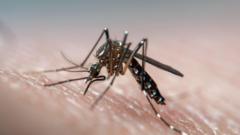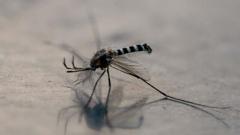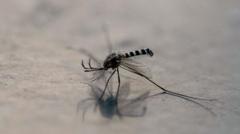In a groundbreaking study, scientists have explored a novel method to combat mosquito-borne diseases, such as dengue, Zika, and yellow fever, by rendering male mosquitoes deaf. The research, conducted by a team at the University of California, Irvine, targets the mating behavior of the Aedes aegypti mosquito, which is responsible for infecting approximately 400 million individuals globally each year.
Mosquito mating typically occurs while flying, with males relying heavily on auditory cues to locate and pursue female partners, whose wingbeats signal their readiness to mate. However, by disrupting a genetic pathway linked to male mosquitoes' hearing abilities, researchers found that these altered insects struggled to attract or successfully mate with females. The team observed that after being confined in the same cage for three days, the deafened males made no mating attempts whatsoever.
The genetic modification centered around a protein known as trpVa, essential for sound detection. In the modified male mosquitoes, neurons that usually respond to the mating calls of potential partners exhibited no reaction, rendering the captivating sounds ineffective. In stark contrast, wild-type males were prolific breeders, mating multiple times and effectively fertilizing most females in their enclosure.
This research, published in the journal PNAS, demonstrated a total breakdown of mating behavior among the genetically altered mosquitoes. Dr. Joerg Albert, a mosquito mating expert from the University of Oldenburg in Germany, praised the study as an innovative approach to mosquito control, acknowledging the need for further study to understand the implications of targeting sound in these insects' reproductive success.
He emphasized that removing males' hearing abilities could lead to a significant decline in their populations, potentially causing vulnerabilities in the ecosystem, as these insects play crucial roles in the food chain and pollination. Other methods under investigation include the controlled release of sterile males into regions afflicted by mosquito-spread diseases, creating a multi-faceted strategy to tackle these public health challenges.











